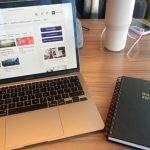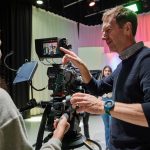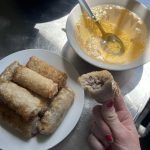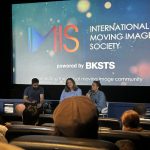 Produced by Guest blogger
Produced by Guest blogger
Hello everyone! My name is Chizuru Tanaka and I am delighted to introduce you to my Turing Scheme experience. First of all, I would like to introduce my background.
I have been working for a Japanese bank and am taking advantage of my company’s sabbatical leave system to study an MBA course here at Bournemouth University.
Here is why I am studying for the MBA course and joining the Turing Scheme:
- I was previously posted to the Bangkok branch for two years and recognised the need to expand my business communication knowledge with local staff and my international management skills
- An AACSB-accredited MBA course at BU would expand the skills I want to develop
- I would like to continue to build my business career overseas and need to gain more cross-cultural experience
- The Turing Scheme can provide me with essential opportunities for my future career
- The MBA DX project, a joint project between BU, the British Council and Vietnamese universities, offers me the opportunity to complement all the skills I need.
Preparing for my mobility
As I used the Turing Scheme as an MBA project, I did not experience difficulties finding work abroad. However, I did have to go through some complex paperwork for my Turing Scheme application. This process was not easy, but it was similar to applying for a company’s budget. I can assure you that it is not a waste of time to experience this application process before entering the business world!!
Here are some tips
- Read through the documents as soon as possible
- Start early with tasks that can be done
- Ask for the host company’s work and signatures as soon as possible, as they are required
- Giving the host party enough time to work is a crucial business etiquette for an applicant. Take one step at a time without going through the hassle!
We travelled to the three universities which are the project’s collaborators to conduct qualitative research, mainly through interviews and focus groups.
This work aimed to investigate students’ ideas, opinions and insights to develop a new Digital Transformation framework for the future in Vietnamese higher education institutions.
A total of 50 students participated in the qualitative survey and shared with us their aspirations utilising the vision boards. It was an amazing and valuable time for us!!
Global outlook & reflections on my experience:
The following new learnings and insights were gained through this Turing Scheme:
I had experience with global projects in banking, but this was my first experience of an academic project. The similarities are that cross-cultural understanding is paramount, both in the business and in the academic field. It sometimes involves a tolerance for ambiguity and an understanding of flexibility in not going according to plan. Through this project, my tolerance has broadened considerably. This tolerance will be crucial to the project’s success in the practical business world.
The cultural differences between British University Vietnam, University Economic Ho Chi Minh and Tra Vinh University were also present in Vietnamese universities. In particular, UEH and TVU showed the collectivism noted in Hofstede’s country comparison framework. The emphasis on community among close peers meant that this needed to be controlled for effective discussions in the vision board. In addition, because of the emphasis on a hierarchical society, the vision board is required to be held solely by the students without the involvement of the faculty to elicit honest opinions from the students.
I also learnt that close communication with the students was significant in all three schools, not only in organising the workshops but also in communicating well with them, which helped to release their tension and lead to more active discussions. The importance of having fun while doing so was more highly demanded than in my home country of Japan.
These perspectives have given me meaningful insights for my future career. Despite the differences between employees and students, the fundamental ideas and measures in different cultures remain the same. After returning to work at the bank, I will have a project with Vietnam. The cross-cultural understanding gained through this Turing programme experience has also allowed me to boost my confidence.
With my newfound tolerance and flexibility, I could work effectively with staff from various countries, not just South East Asia. I have read in a Harvard Business School publication that not only experiencing but also reflecting on the experience can lead to significant growth, and I would like to share this perspective with students considering working abroad!!
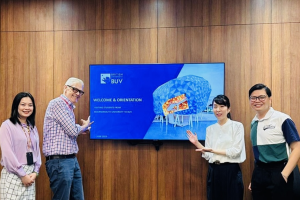
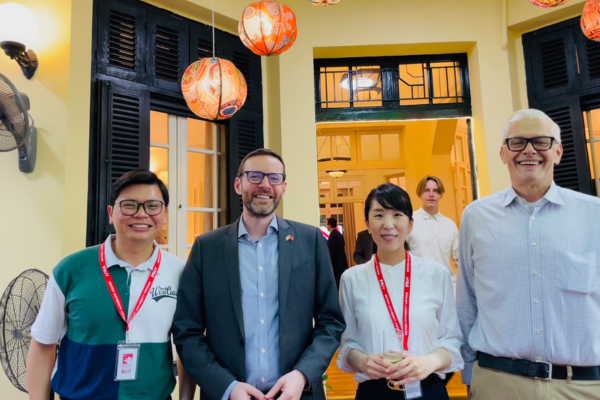
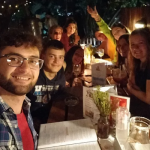 Volunteering in South Africa as part of the Turing Scheme study abroad placement
Volunteering in South Africa as part of the Turing Scheme study abroad placement How the Turing Scheme helped me travel 11,564 miles away from home, to New Zealand!
How the Turing Scheme helped me travel 11,564 miles away from home, to New Zealand!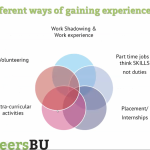 Understand the UK job market – tips from BU Career team to prepare for my future job
Understand the UK job market – tips from BU Career team to prepare for my future job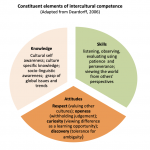 Opportunities to build intercultural competence while studying at Bournemouth University
Opportunities to build intercultural competence while studying at Bournemouth University
